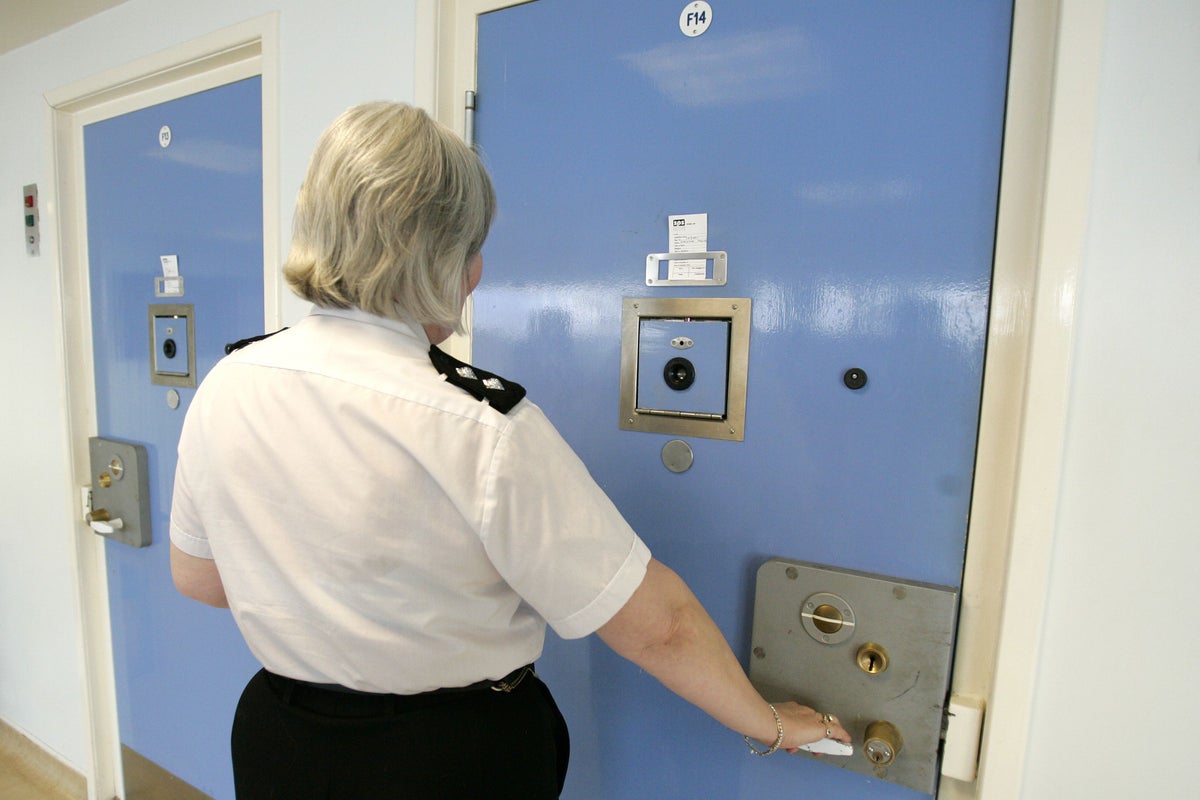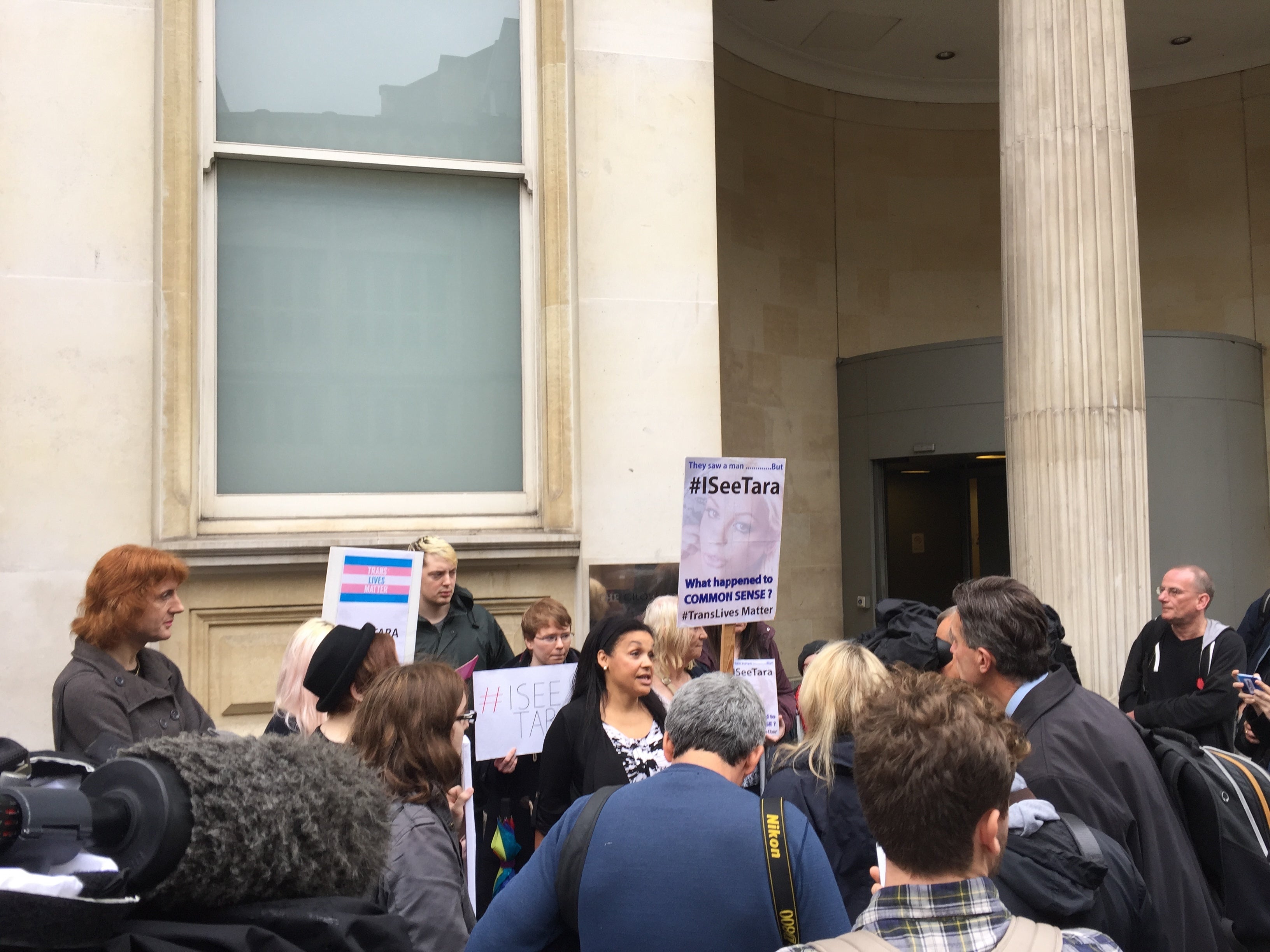
The Supreme Court gender ruling could lead to trans prisoners getting “seriously hurt”, a trans woman who was moved from a men’s to a women’s prison a decade ago to serve a sentence has said.
Her comments come as a solicitor also warned the judgment by the UK’s highest court on Wednesday, that the definition of a woman in equality law is based on biological sex, could “gravely affect very vulnerable prisoners”.
The ruling means transgender women with a gender recognition certificate (GRC) can be excluded from single-sex spaces if “proportionate”.
Latest prison service data for 2023/24 shows there were 295 transgender prisoners in England and Wales, with 51 in female prisons and 244 in male prisons.
Of the transgender prisoners in the male estate, 225 self-identified as transgender female, while 48 inmates in the women’s estate self-identified as transgender male.
Tara Hudson was handed a 12-week custodial term by magistrates in 2015 for common assault.
She served half of the sentence, spending one week in an all male prison and the remaining five in a women’s prison after a petition calling for her to be transferred attracted more than 100,000 signatures.
The 36-year-old has lived as a woman all her adult life.
“I had huge public support back then but now I feel like somebody in my situation would not get that support,” she told the PA news agency.
Ms Hudson, of Somerset, said she believes if a trans woman was embroiled in a situation like hers now, she would not be transferred to a women’s prison.
“There would be no sympathy,” she added. “But there was sympathy for me, and that just shows how much it’s changed in the past 10 years because of such intense debate over something that’s actually very, very small and has been blown out of proportion.”
Ms Hudson stressed that she was “in the middle” of the debate, that both sides have opinions she agrees with and disagrees with.

Asked if she believes the Supreme Court ruling will affect vulnerable prisoners, she told PA: “Yes. I fear that there’s going to be a case like mine.
“I think a trans woman is going to get seriously hurt.
“If you look very, very feminine like I did when I was 26 – I was a glamour model – the pressure that I was put under on that male prison wing is something that I’d not want to see anyone go through,” Ms Hudson continued.
“If you look like an attractive woman, regardless of biology, and you’re put into a male prison wing with males who haven’t had sex in a long time, stuff is going to happen.”
She said there needs to be more trans wings in prisons.
On the ruling in general, she said she neither condemns nor welcomes it, but admitted it made her feel “hopeless”.
“I think women, biological women, deserve to have their own spaces and if they don’t want to be around transgender women in safe spaces then they have that right to choose, but I’m worried about the transgender women that are going to be forgotten and thrown under the bus because of this,” Ms Hudson said.
“Because we do suffer from domestic abuse. We do suffer from many things. We need protection, and some toxicity needs to be taken out of the debate and it doesn’t seem like anybody is willing to do that.”
“As a victim of domestic abuse, I do worry about transgender women – where they have to go when they’ve been hurt and when they’re trapped – they deserve a place to go as well,” she added.
“I felt the ruling was coming,” Ms Hudson said.
“It makes me feel hopeless.
“When I spoke out to the media I was told that I was helping to make a change and that’s what I wanted to do, I wanted to help to make a change and that change has been bad, it’s gone in a really bad direction.
“Most trans people just want to get on with their lives and live quiet lives. They don’t want to make a fuss about anything.”
She said people need to “come together” and “say we’re going to do better”.
Maya Grantham, senior associate solicitor for Leigh Day, said the Supreme Court ruling would not affect hundreds of prisoners but it could “gravely affect very vulnerable prisoners quite severely”.
As of March 31 last year, 10 prisoners were known to have a gender recognition certificate, who were not included in the transgender prisoner data detailed by the prison service’s offenders equalities report.
Ms Grantham said: “A lot of transgender people are incredibly vulnerable and the male estate does pose quite significant problems to anyone who is vulnerable.
“It’s completely unsuitable for someone living as a woman.”
She added: “There’s a lot of physical and sexual violence in male prisons and we are placing vulnerable people in that environment.
“It just feels like a massive step back to be treating them according to sex when we know that transgender people are vulnerable.
“It’s not that this is going to be a widespread issue that affects hundreds of people, but it’s a change that could very gravely affect very vulnerable prisoners quite severely.”
The ruling comes after policy changes came into force in February 2023, and under the changes, transgender women who are sentenced to custody cannot be held in the women’s estate if they retain male genitalia or have been convicted of a violent or sexual offence – unless in the most exceptional cases.
There is one transgender prisoner unit in the prison estate, at HMP Downview, in Sutton, which is designed to hold trans women deemed to be too high risk to be accommodated in women’s prisons, but also at risk from other inmates in male jails.
A Government spokesperson said: “This ruling brings clarity and confidence, for women and service providers.
“This Government remains unwavering in its protection of women.”






